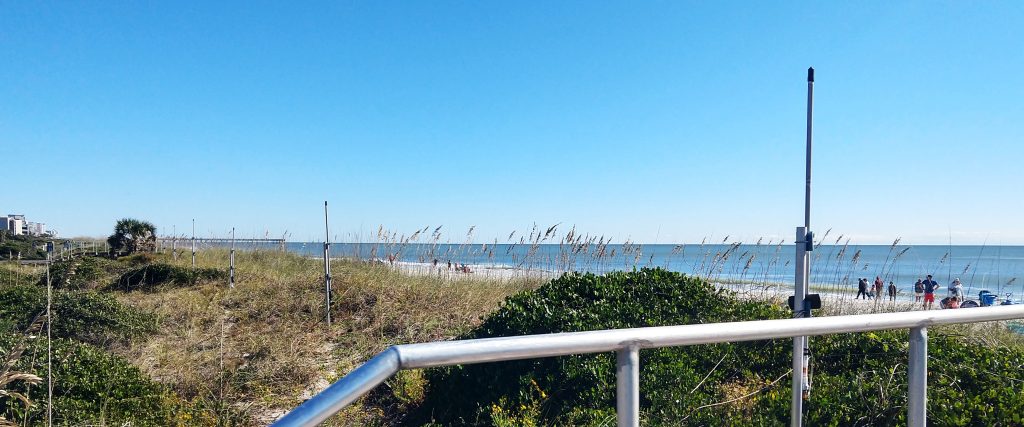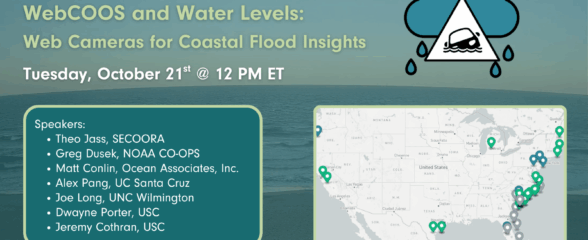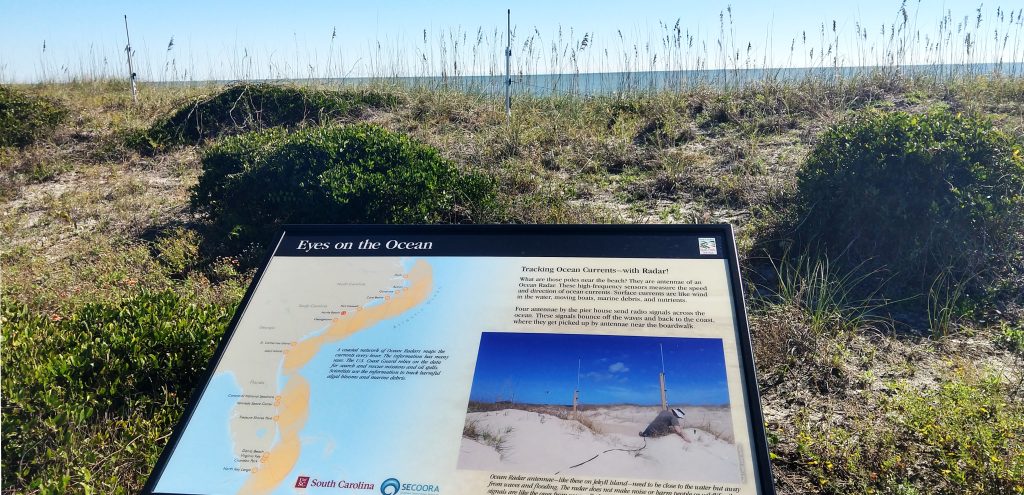A new High Frequency Radar (HF radar) was installed in Myrtle Beach State Park by the University of South Carolina. The new HF radar system was installed to close a gap in HF Radar coverage between Caswell Beach, NC and Georgetown, SC.
Myrtle Beach State Park HF Radar
The radar antennas are located within Myrtle Beach State Park near the pier house. HF radar transmit radio signals across the ocean. These radio signals bounce off of ocean waves and signals are scattered back to the coast where they get picked up by the antennae. The returned signals are analyzed to estimate surface current speed and direction.

Why collect surface current data?
HF radar are land-based systems that measure the speed and direction of ocean surface currents in near real-time. Surface currents can move objects in the ocean such as boats, marine debris, and nutrients.
The data collected by HF radar has many uses, including U.S. Coast Guard search and rescue mission planning and oil-spill response efforts. Scientists use the surface current data to track harmful algal blooms and marine debris and to better understand ocean transport of larval fish, plankton, and nutrients.
Backbone of Coastal Ocean Observing Systems
HF radar networks form the backbone of many coastal ocean observing systems. The broad range of uses is the reason that the National Oceanic and Atmospheric Administration (NOAA) Integrated Ocean Observing System (IOOS®) invests in a national network of HF radar. SECOORA operates a growing network of HF radars in the Southeast. 17 HF Radar are currently deployed from North Carolina to the Gulf coast of Florida and 4 more HFR will be installed on the east coast of Florida by 2022.
The new HF radar was funded by IOOS as a national effort to close the gaps in monitoring the ocean.
Related news

Now Hiring: Director of Communications and External Affairs
SECOORA is seeking to fill the full-time role of Director of Communications and External Affairs. This role will serve as the organization’s strategic lead for engagement, communication, and external relations.

SECOORA Webinar | WebCOOS and Water Levels: Web Cameras for Coastal Flood Insights
On October 21st at 12 PM ET, SECOORA is hosting a webinar with investigators from the Webcam Coastal Observation System (WebCOOS) project team and the WebCOOS Project Manager. Web cameras are a low-cost technology that can be used to document flooding impacts to coastal communities. Register here.

SECOORA Funding Opportunity Announcement: Letters of Intent Solicitation
SECOORA will submit a coordinated regional proposal in response to the anticipated FY 2026 Implementation of the U.S. Integrated Ocean Observing System (IOOS) funding opportunity. Letters of Intent to be considered for inclusion in SECOORA’s full proposal are due September 9, 2025.
